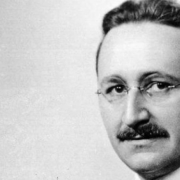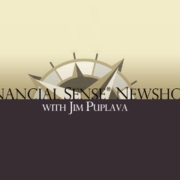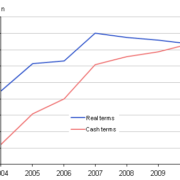Did Hayek and Robbins Deepen the Great Depression?
I always love sitting on the beach in the Caribbean post Christmas, catching up with my neglected reading and getting lots of strange stares from fellow holiday makers looking at my book titles. “Oh, how interesting”, they politely comment, when what I know they want to say is “you weirdo!” Anyway, some of you readers may well appreciate … Caribbean Reading 1: Did Hayek and Robbins Deepen the Great Depression? This is written by Professor Lawrence (Larry) White, one of the leading Austrian School economists of his generation. His speciality is monetary theory and economic history. Little has been said of White on this site as I and a number of my fellow writers have many problems with his views on free banking, but as we have no corporate line at the Cobden Centre, we do have writers who have great sympathy with his views who are free to “big him up,” not to mention enthusiastic commentators who blog on our site with vigour! The article does what it says on the tin. It shows that Hayek and Robbins at the LSE in the 30′s did not have any policy application to the workings of the liquidationists in the Hoover administration. Indeed it becomes clear that the American administrations of the 30′s came under the direct influence of the Real Bills Doctrine before the Keynesian tidal wave swept all other forms of economics to the backwaters of remote and inhospitable places. The article is a great service to economic history. It the allows us to ask the question of ourselves as Austrian School sympathisers: in this Great Depression 2, what should we be advocating? White shows us that Hayek and Robbins in the 20′s would have supported a real deflation due to the great productivity increases in the key world economies at the time. Instead, more fiduciary media was created that caused the roaring 20′s boom that led to the bust of the late 20′s and 30′s. He goes on to show how Hayek, faced with the significant money deflation, advocated in his writings a policy of holding the money supply at it’s old level: the pre-bust level . The inflating of prices caused malinvestments and the deflating of it would cause unnecessary bankruptcies. In and ideal world, if wages and other key factors of production were flexible, a mild deflation would take place, prices would readjust, and we would soon get back to a productive economy. If they were not, we would spiral into a “secondary deflation.” This was akin to mass money hoarding and a Central bank could step in and provide cash for investment projects so that large parts of the productive structure would not be blown away. This would offset the irrational panic. Both Robbins and Hayek thought a mild deflation with a fully functioning free market would clear out the past excesses in a targeted way. They both thought that post Depression 1, the deflation was too severe and advocated a money creating process by the Central Bank to prop up industry. This has given a branch of modern day Austrian School, the Monetary Equilibrium School led by Selgin and White himself, the intellectual antecedents to develop out this theory further . Are we at the stage today when we need a Central Bank accommodative policy to avoid a secondary deflation ? As we have had real money supply contraction (when you look at cash notes, coins, and demand deposits and not timed deposits see Baxendale and Evans on money supply definitions here) would it be time to do this now? With what great wisdom does the Monetary Equilibrium School / Demand School come to be able to gauge when a good deflation turns into a bad ? Are we in a bad deflation yet? I can’t personally see how creating more money units to offset a demand to hold cash will achieve anything other than sowing of the seeds for the next credit induced boom. However, lets give money creation in these circumstances the benefit of the doubt and say “yes, it will make people feel more comfortable to know their bank will be more accommodating to their needs in personal and business life.” They then start to respond again and the old patterns of spending reboot themselves and the new additional money stays in circulation and bingo, we have a mini credit boom on our hands again with the massive distortion of the structure of production this implies. I would counsel anyone interested in this interpretation of Hayek’s work to look more closely at this line of thinking, as it is not far from being as dangerous as Bernanke’s own thoughts. I would encourage people to think about what gets in the way of prices resetting themselves, allowing employers to set flexible wage and working time policies in these circumstances, for example, may well be a far better policy for Austrians to pursue. Labour is invariably the most expensive part of the cost base of most firms and this does seem to sure-fire way of avoiding a secondary wipe out deflation. I would also look at advocating a money base fix so there could never be a deflation. Huerta De Soto advocates this in Chapter 9 of Money, Bank Credit and Economic Cycles, which you can download here. I have also advocated a similar approach, in layman’s terms, here. We can never know what Hayek and Robbins would be advocating today. Thanks to White’s essay, we do know what they did and did not advocate, and who was and was not listening to them in the first Great Depression. We do also know there are wide views across the modern Austrian School . I favour a “play it safe” approach, and do not think you can predict what the right or wrong level of demand for money is to offset with newly minted “counterfeit” money. There are ways to avoid deflation; a money base fix is described above . A freer market would of course prevent much of this happening anyway!



![spirit-level-why-greater-equality-makes-societies-stronger[1]](https://tobybaxendale.com/wp-content/uploads/2013/07/spirit-level-why-greater-equality-makes-societies-stronger1-180x180.jpg)



![banksign[1]](https://tobybaxendale.com/wp-content/uploads/2013/07/banksign1-180x180.jpg)

![money-770×426[1]](https://tobybaxendale.com/wp-content/uploads/2013/07/money-770x4261-1-180x180.jpg)


